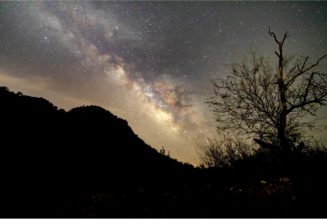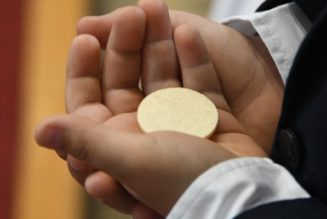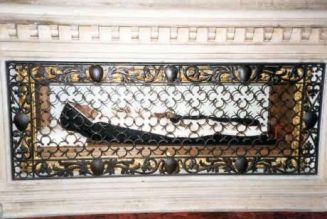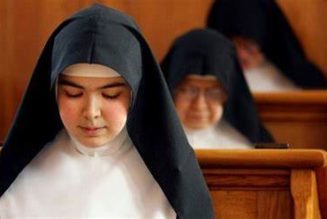ROME – In a recent interview, Pope Francis either confirmed or announced a flurry of upcoming diplomatic initiatives focused on several of his key priorities, including the war in Ukraine, climate change and inter-faith relations, especially outreach to Islam.
The initiatives include:
- A looming visit by his personal envoy on the Ukraine conflict, Italian Cardinal Matteo Zuppi, to Beijing, after previous stops in Kyiv, Moscow and Washington, D.C.
- The possibility of naming a permanent representative to act as a go-between with authorities in Ukraine and Russia.
- A meeting of religious leaders for peace in Abu Dhabi, ahead of the Nov. 30-Dec. 3 COP 28 summit on climate change in Dubai.
- A request to President Lula da Silva of Brazil to intercede with the government of Daniel Ortega in Nicaragua for the liberation of imprisoned Bishop Rolando Álvarez.
- Plans for a papal trip to Kosovo.
The pope made the revelations in an Aug. 4 interview with the Spanish news platform Vida Nueva, on the occasion of its 65th anniversary.
It had been widely expected that Zuppi, who serves as president of the Italian bishops’ conference, would made a trip to China after meeting U.S. President Joe Biden on July 18, and the pope confirmed that intention.
“After the visit of Cardinal Zuppi to Washington, the next expected step is Beijing, because both also hold the key to reducing tension in the conflict,” Francis said. “All these initiatives are what I call a ‘peace offensive’.”
The continuing press comes despite the fact that to date, neither side in the conflict has shown tremendous interest in the Vatican playing a mediator role, a point the pope conceded in describing Zuppi’s visits to date.
“He’s already gone to Kyiv, where they maintain the idea of victory without opting for mediation,” Francis said. In Russia, he said, Zuppi found “an attitude that we could define as ‘diplomatic.’”
The pope noted, however, that Zuppi did find some openness to the idea of a humanitarian role for the Vatican, especially in the return of children forcibly removed from eastern Ukraine by Russian forces, ostensibly for their protection.
“We’re doing everything that’s in our power to guarantee that any family member who requests the return of their children can do so,” he said.
In that context, the pope revealed his intention to name a permanent representative to Ukraine and Russia, at least at the beginning with a largely humanitarian focus.
“For me, in the middle of the pain of war, that’s a great step,” he said.
With regard to the idea of putting together an inter-faith assembly in Abu Dhabi, Francis said that project is being coordinated by Italian Cardinal Pietro Parolin, the Vatican’s Secretary of State.
The choice of venue is significant, since it was there in February 2019 that the pontiff and Sheikh Ahmed el-Tayeb, the Grand Imam of the Al-Azhar Mosque in Cairo, signed the “Document on Human Fraternity” which served as a blueprint for the pope’s encyclical letter Fratelli Tutti one year later.
In the wake of the document, Abu Dhabi established a “Higher Committee on Human Fraternity” to promote its content, part of a broader project by the United Arab Emirates of establishing a profile as a proponent of religious tolerance. In February 2022, the Vatican established its first embassy in the country.
Although both Popes John Paul II and Benedict XVI also convened summits of religious leaders, they took place in Assisi, the birthplace of St. Francis, and thus in a sense on Catholic territory.
In the Vida Nueva interview, Francis said that in this case the idea is to stage the event “outside the Vatican, in a neutral territory that invites everyone to meet.”
In part, the event will allow Parolin to extend the pope’s push on climate change and the environment, following his 2015 encyclical letter Laudato si’. In context, however, it’s expected the religious leaders will also discuss other issues, including the war in Ukraine.
With regard to Nicaragua, it was widely speculated in late June, when Lula visited Pope Francis in the Vatican, that the pontiff had asked the Brazilian leader to intervene in the Álvarez case. Francis confirmed that point in the Vida Nueva interview, saying, “We’re continuing, we’re trying to negotiate.”
Álvarez is currently serving a 26-year prison sentence in Nicaragua, after the prelate rejected a deal in early July to go into permanent exile in Italy.
As for the trip to Kosovo, the pope said, “We are working on (the visit), but it has yet to be defined,” and did not offer a possible date. The announcement follows a June 22 meeting in the Vatican between Francis and Kosovo’s Prime Minister Albin Kurti, in which Kurti extended an invitation.
Assuming it happens, the papal trip would come at a time when tensions are flaring anew between ethnic Albanians, who make up the bulk of the country’s population, and the small Serbian minority, raising fears about a return to the violence of the late 1990s.
A landlocked nation of just 1.8 million, Kosovo declared independence in 2008 but it not recognized by Russia, China or Serbia, which would make the pope’s presence in the country another delicate diplomatic balancing act.






